|
The most best books- a relative concept. Good printed edition this moment- this is a work that brings a person comfort, advice, knowledge, wisdom, and vivid impressions. Thus, the determining factor is whether the book satisfies the needs of a particular reader. For some people, only specialized literature is valuable: documentary, scientific, technical, medical, industrial. But this is rather food for thought. However, most readers are still interested in fiction books. They are the ones who contribute to the formation of a spiritual image. They will be discussed in this article. A fiction book is a unique invention. A galaxy of thinkers from different times and eras trusted paper with their hopes, observations, understanding of truth, life, and humanity. It’s wonderful when created by these authors vivid images together with deep and unique quotes (sometimes decades ago, and sometimes centuries ago) illuminate the lives of our contemporaries! The role of the Russian Book of the Year competitionCurrent literary process in Russia is unusually fruitful and has character traits inherent in decadence: Directing the literary process in a constructive direction, avoiding the erosion of the national and stimulating truly talented beginnings in it is an extremely important task of modern Russian culture. An indicator of the success of the books written by our contemporaries are the annual national competitions of the “Book of the Year” type. They are organized with the aim of stimulating both writers and publishing houses. For example, in the Russian competition in 2014, traditionally held in mid-September, 150 publishing houses participated, submitting more than half a thousand books to the competition. Winners were announced in 8 categories: - prose works - the novel “The Abode” (Zakhar Prilepin);
- poetic work - translation of Shakespeare's "King Lear" (Gigory Kruzhkov);
- fiction for children - the story “Where does it gallop?” cock horse? (Svetlana Lavava);
- art book - “Kargopol Journey” (prepared by the local architectural and art museum);
- Humanitas nomination - artistic and documentary album “Lermontov” (State Archive of Arts and Literature);
- e-book - media project « Yasnaya Polyana" and "Yaroslavl Temples" (project bureau "Sputnik");
- nomination “Printed in Russia” - album “Vetka. Book culture";
- the main prize of the “Book of the Year 2014” competition is the three-volume “Russia in World War I” (a team of 190 researchers from universities, museums, and archives).
To summarize: the objectives of the above-mentioned competition are to improve the status of the book in the current public life; stimulating the best authors and publishing houses. Over the sixteen years of its existence, this event has proven in practice its motivating role in the development of Russian literature. At least, they nominated Russian writers who can rightfully be called classics: - 2004, nomination “Prose” - “Sincerely yours, Shurik” (Lyudmila Ulitskaya); nomination “Bestseller” - “Night Watch” (Sergei Lukyanenko);
- 2005, nomination “Prose” - “Voltairians and Voltairians” (Vasily Aksenov);
- 2011, nomination “Prose” - “My Lieutenant” (Daniil Ganin).
International book ratingsAs we have already mentioned, the best, most popular books, thanks to the thoughts crystallized in them, become real friends, advisers, and joy for their readers. And the authors who wrote them are called classics. The best books created by talent are studied in schools and universities. educational institutions, they are widely quoted in everyday life. At the very least, browsing the Internet reveals dozens of variations of the “Top 100 Books.”
 Lists like these have some value. Thanks to them, it becomes much easier for a novice reader to find the truly best books to read among tens and hundreds of thousands of works. If a person feels his gaps in knowledge of world culture (an integral part of which is domestic and foreign literature), then such a rating can become a route map. What direction should you choose for such a landmark? If you are really interested in world literature, then we would recommend using one of the ratings by version: - English Broadcasting Company (BBC);
- The Observer;
- Union of Writers of Russia;
- French newspaper Le Monde;
- American publishing house Modern Library;
- Norwegian book club.
Of course, the news agency of each country, listing the best books, tries to give leading places in the compiled lists to fellow countrymen authors. And this is justified. After all, the talents of recognized classics who created their masterpieces since the time ancient world to this day are not really comparable. Each of them finds a path to the hearts of readers in their own way.
Text: Alexandra Bazhenova-Sorokina
Illustrations: Dasha Chertanova
THEY SPEAK MUCH MORE ABOUT GREAT WRITERS THAN WOMEN WRITERS- the latter are often associated with literature “for women”. This is definitely unfair - modern literature I wouldn’t be myself without outstanding writers. We decided to remember ten of our writing contemporaries, who will probably be read tomorrow and in several decades.
Donna Tartt
Perhaps the most successful intellectual writer of the 21st century, Donna Tartt made a splash around the world with her third novel, The Goldfinch. It turned out that among postmodernity and post-irony there is a place (and there is a need) for an old-fashioned, serious work. Tartt's hefty volumes are selling out quickly: both readers and critics appreciate her for her beautiful language, clever plots, humanism and for the thoughtful slowness with which you read Dickens or George Eliot.
In "The Goldfinch" classic novel education, based on the tragedy of a boy and his long journey to growing up and finding himself, fascinates at the same time with the sophistication of the style and the twists of the plot. This is exactly the case when thinking about a text drags on like a trail - significantly exceeding the time of actually reading.
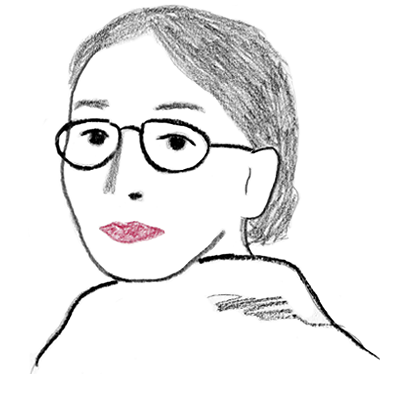
Joyce Carol Oates
For some time it was customary to make fun of Joyce Carol Oates's performance, but the critics dried up, but the talent of the 78-year-old American did not. Dozens of novels, hundreds of stories and poems, of course, are not of equal size, but there are already articles on this that will help to understand Oates’s existing legacy.
Over the years, few people have been able to talk so consistently and with such subtlety about violence, about gender and racial inequality, about social problems, showing them not only as “environmental problems”, but as part of inner life personality and, accordingly, as anthropological problems. In Russia, Oates is primarily known for her programmatic novel “The Garden of Earthly Delights” about the struggle between destructive and creative principles in one woman.
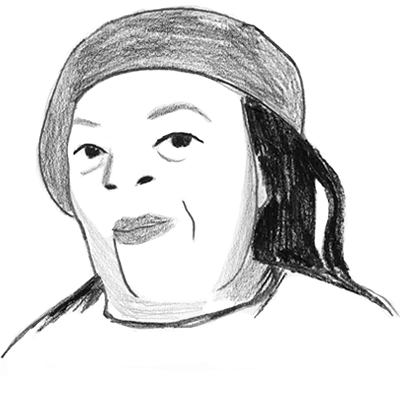

Toni Morrison
At eighty-five, Toni Morrison - living legend, a literary pillar, undeservedly little read in Russia. One of the main authors of American multiculturalism, like no other, claims the title of Marquez USA. Mine last novel She graduated only a year ago, actively lectures and is a loud voice of “black America”, whose comments on the murders of African-American teenagers are no less important for many Western intellectuals than the statements of politicians or pop stars.
In his novels, Morrison talks about the identity of the African-American population of the United States through magical realism. For example, “Beloved” is written in best traditions American Gothic is the story of a woman escaping slavery and forced to confront her own past, which takes on flesh and blood. The writer’s texts are structured in such a way that the author’s reflection on human dignity, about different types oppression, myth and love.
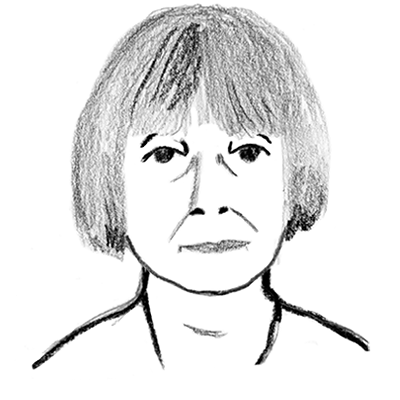

Lyudmila Petrushevskaya
In modern Russian prose, women play a key role, and it is impossible to list all the important names. However, towering over all of them like a pillar is the Russian word magician Lyudmila Petrushevskaya. The author of novels, plays, short stories, songs, fairy tales that have become memes (Peter the Pig), and the script for the mystical “Tale of Tales” by Norshtein is still actively writing, and also sings, draws and does everything else.
Stories, novels, and the story “Time is Night,” which brought Petrushevskaya her first fame, are really difficult to read, because what makes her prose frightening is not the fantastic component (where it exists at all), but Gogol’s irony and the vitality of the nightmares that occur. However, oppressive and Magic world Petrushevskaya is attractive, and not only for her compatriots: she managed to achieve recognition both in the post-Soviet space (and this after a many-year ban on her books) and abroad. To this day, she remains one of the most translated Russian writers.
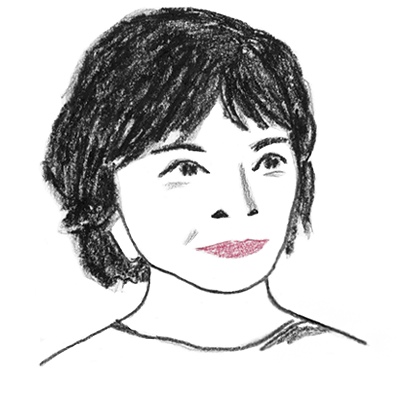
Isabel Allende
The most famous Spanish-language writer of the 20th century is Chilean by nationality, born in Lima, and lives in the USA, so she may well be considered Pan-American. In addition to the classics “The House of the Spirits” and the adventures of Eva Luna, the writer has, for example, an amazing autobiographical book “Paula”, dedicated to her deceased daughter and telling about the coup in Chile, about personal life and Allende’s own vocation and motherhood.
Allende proved that a Latina could become an internationally popular writer, and she herself began to set the rules for the relationship between magical realism, eroticism and historical storytelling. Her wonderful book “Aphrodite,” dedicated to aphrodisiacs, deserves special attention.
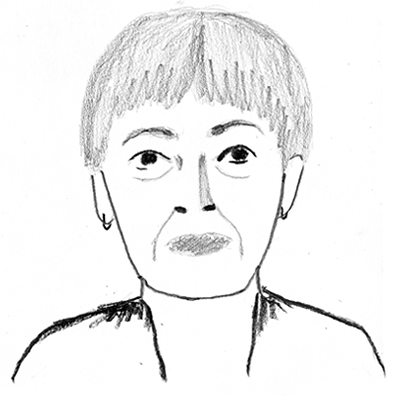
Ursula Le Guin
Neil Gaiman and Terry Pratchett, David Mitchell and Salman Rushdie, J. R. R. Martin and other greats of the literary world openly acknowledge the undeniable influence of Ursula Le Guin's work on their prose. One of the main authors of science fiction and fantasy of the 20th century, she has an imagination capable of inhabiting distant planets and thinking through in detail the features of forms of culture alternative to human ones. But not only.
In her texts, she accurately and deeply, with the wise detachment of an anthropologist, analyzes the nature of gender, sexual and social inequality, reflects on otherness in all its manifestations, on the ecology and politics of the colonialists - and the author of “The Left Hand of Darkness” and Tales of Earthsea began to ask these questions long before it became mainstream.
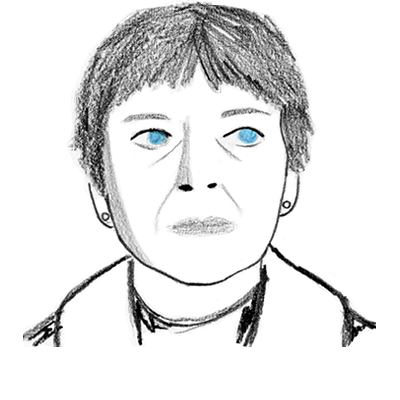

Olga Sedakova
Olga Sedakova was entrusted with “Moscow - Petushki” by Venedikt Erofeev, John Paul II corresponded with her, Sergei Averintsev taught her and studied with her. She translated Thomas Aquinas, Emily Dickinson, Paul Claudel and others, but most importantly, she wrote and writes poetry that in the 20th and 21st centuries does not speak funny or falsely about faith.
Sedakova began working when any creativity related to religion was banned in the USSR, and now, finding herself in completely different conditions and facing other difficulties, she continues to prove that spiritual heights and true art can still be combined and bring light, not destruction. The poetess is published in Russia and abroad, and her philosophical and philological works are no less interesting than her poems. Amazing purity and greatness of the Russian language, which the author speaks in a language unattainable for most modern writers level, are visible in any of her texts, including the latest collection of poems different years"Garden of the Universe".
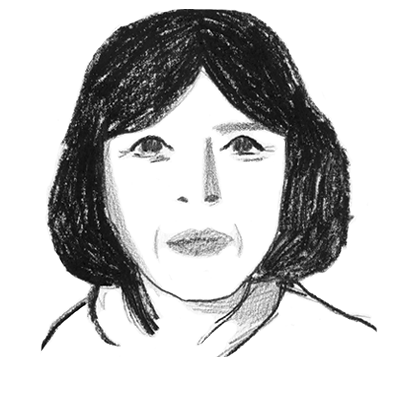
Svetlana Alexievich
The figure of Svetlana Alexievich is constantly surrounded by controversy, and after being presented to her Nobel Prize in literature and even more so: after all, she doesn’t write fiction. Indeed, Alexievich is the first non-fiction author in the history of the award. If the writer’s political statements raise questions, then her works speak for themselves.
Alexievich gives texts ordinary people the opportunity to write history, whether we are talking about women and children in World War II or those who served in Afghanistan. Both in the program book “War Doesn’t Have a Woman’s Face” and in the new work about the 90s “Second-Hand Time” it is difficult to separate fiction and non-fiction. The emotional effect of the great Belarusian’s prose is no less than that of novels, and what she tells is both a document of the era and a universal monument to human suffering.
The stories are written in such a way that you want to re-read them, and each time in a small text she manages to fit a surprisingly rich narrative, creating a world that significantly exceeds the volume of the work. In the collections “Too Much Happiness” and “Runaway” published in Russian, one can feel all the characteristic features of Munro’s prose. There is more ambiguity than clarity, time jumps back and forth, and the story can end in mid-sentence. Despite the sometimes wildly twisted plots and characters unexpectedly changing in the eyes of the reader, you believe every word of the author, as if you were personally observing what was happening.
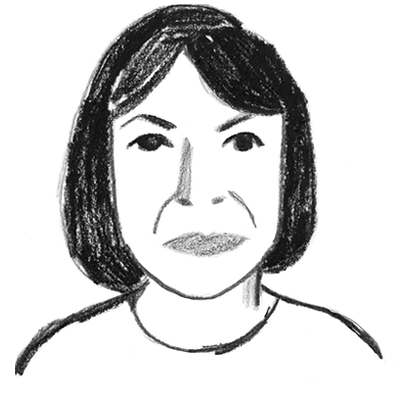
Joan Didion
One of the most influential nonfiction writers to emerge from the school of New Journalism, Joan Didion is an example of a writer who creates literature from life. Since the 1960s, Didion has written prose and journalism, exploring a wide variety of social phenomena and problems. One of Didion’s most highly rated works is the autobiographical book “The Year magical thinking"- was written as a kind of therapy: the author describes the death of her husband, her daughter’s illness, grief as social phenomenon And How personal experience.
Both the literary and journalistic texts of the writer are thought out to the smallest detail: a student of Hemingway, Henry James and George Eliot preaches the value of the correct construction of each sentence, because syntax, like a camera in a movie, snatches from reality exactly what the author wants to show the reader.
Women excel in many fields, and writing is no exception. There are a great many women writers who have written outstanding books that can change lives. It is quite difficult to choose the best of them, but still below you will find our list of the 10 best and most popular modern female writers in the world.
— 10 —
Joan Kathleen Rowling
The creator of children's books that reveal the fascinating and magical world of Harry Potter is considered one of the most... influential women Great Britain. More than 450 million copies of her bestselling series have been sold worldwide.
She says the idea for the story came to her on a delayed train from Manchester to London in 1990. Her books reflect how Joan's imagination goes far beyond everyday reality.
Thanks to the Harry Potter series of books, in five years she changed her status from an unemployed woman living on welfare to a billionaire.
— 09 —
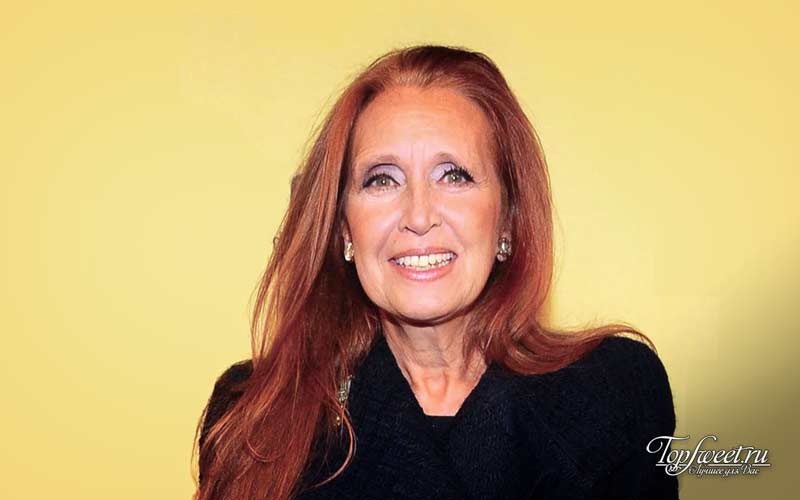
With 800 million books sold, Steele is currently the best-selling writer alive and the fourth best-selling author ever published. All of her novels became bestsellers. Their plot, as a rule, is about how rich families are going through a crisis and difficult love stories. Steele has also tried writing children's fiction and poetry.
She also raises funds for the treatment of psychiatric diseases. Her books have been translated into 28 languages, and films have been made based on 22 of her works.
— 08 —
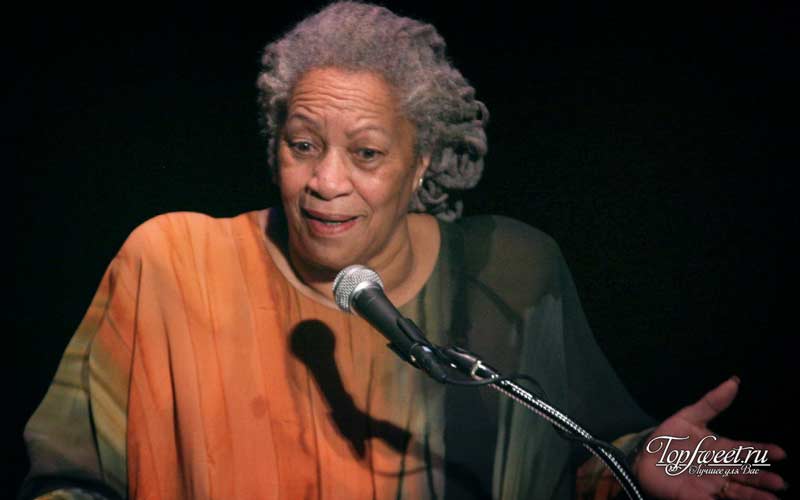
Her novels are distinguished by interesting and carefully written characters and vivid dialogues. Her best novels are The Bluest Eyes (1970), Sula (1973), Song of Songs (1977) and Beloved (1987).
She is the proud owner of the Pulitzer Prize, the US National Book Award and the Nobel Prize in Literature, and on May 12, 2012, she received the Presidential Medal of Freedom.
— 07 —

Stephenie Meyer is famous for her vampire saga "Twilight", which has sold more than 100 million copies worldwide. Her books have been translated into 37 languages and have become a global phenomenon.
Her annual income exceeded $50 million, and in 2010 she was ranked 59th on Forbes magazine's list of the most powerful celebrities.
Motivated by the assertion that no one knows more about great books than great writers, J. Peder Zane, American newspaper columnist The News & Observer, addressed 125 eminent British and American writers modernity. He asked everyone to "submit a list, ranked in order, of the ten greatest works of fiction of all time" from novels, short story collections, drama and poetry. Among those interviewed were such famous authors as Stephen King, Norman Mailer, Anne Patchett, Jonathan Franzen, Claire Messud and Joyce Carol Oates. Of the 544 selected works, each of them made their own top. The book at the beginning of the list received 10 points, and the book at number ten received 1 point. Based on the responses, Zane compiled a book guide, The Top Ten: Writers Pick Their Favorite Books.
Everyone has their own idea of what is considered the greatest. literary work of all times. But it’s always interesting to know the opinion of masters of words. We invite you to take a look at what the ranking of the greatest books looks like, according to modern writers.
The Ten Greatest Books of the 20th Century:
- "Lolita" Vladimir Nabokov
- "The Great Gatsby" F. Scott Fitzgerald
- "In Search of Lost Time" Marcel Proust
- "Ulysses" James Joyce
- "Dubliners" James Joyce
- "One Hundred Years of Solitude" by Gabriel García Márquez
- "The Sound and the Fury" William Faulkner
- "To the Lighthouse" by Virginia Woolf
- "The Complete Stories" by Flannery O'Connor
- "Pale Fire" Vladimir Nabokov
Ten greatest books of the 19th century:
- "Anna Karenina" Leo Tolstoy
- "Madame Bovary" Gustave Flaubert
- "War and Peace" Leo Tolstoy
- "The Adventures of Huckleberry Finn" Mark Twain
- Stories by A.P. Chekhov
- "Middlemarch" George Eliot
- "Moby Dick" Herman Melville
- "Great Expectations" Charles Dickens
- "Crime and Punishment" Fyodor Dostoevsky
- "Emma" Jane Austen
Ten writers by number of books in the top:
- William Shakespeare – 11
- William Faulkner – 6
- Henry James – 6
- Jane Austen – 5
- Charles Dickens – 5
- Fyodor Dostoevsky – 5
- Ernest Hemingway – 5
- Franz Kafka – 5
- (With the same number) James Joyce, Thomas Mann, Vladimir Nabokov, Mark Twain, Virginia Woolf - 4 each
The ten greatest writers by score are:
- Leo Tolstoy – 327
- William Shakespeare – 293
- James Joyce – 194
- Vladimir Nabokov – 190
- Fyodor Dostoevsky – 177
- William Faulkner – 173
- Charles Dickens – 168
- Anton Chekhov – 165
- Gustave Flaubert – 163
- Jane Austen – 161
(b. 1929)
When the whole world discovered Gabriel García Márquez, Soviet readers already had, oddly enough, a fully-fledged analogue of his “domestic production” - Fazil Iskander, under whose wise and crafty pen his native Abkhazia seemed like some kind of enchanted Colombia, and his native Sukhum (slightly disguised under the anagram Mukhus) and the mountain village of Chegem - a real Macondo, inhabited, as befits an epic, by legendary strongmen, sages and villains. The fact that the father of nine-year-old Fazil, an Iranian by birth, was deported from the USSR, naturally could not be included in the epic.
Main book: Sandro from Chegem"
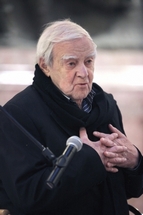
(b. 1919)
If Granin were awarded the Nobel Prize, the wording would be: “For the poetic depiction of scientific and technological progress.” The compulsory curriculum of humanities faculties includes the novel “Walking into the Storm,” about how young scientists risk their lives to explore thunderclouds.
Main book: “I’m going into the storm”
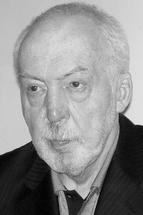
(b. 1937)
Entered into the history of Russian literature (and the corresponding course of lectures at humanitarian universities) “Pushkin House” (1978, published in Russia in 1987) – a sophisticated and refined description of the intellectual world of Leningrad, closed within the walls of this very “house”, in the 1960s - 1970s, with ≪ dying old men and their dean-aged children and post-graduate grandchildren.” Subsequently, he became interested in chanting the small gods of Pushkin’s cult (“Subtraction of the Hare”), melodic recitations of Pushkin’s drafts accompanied by new jazz music and other esoteric rituals. He was awarded the “Big Book” prize in 2007 - but not for a specific work, but for “honor and dignity,” together with Valentin Rasputin.
Main book: “Pushkin House”, 1978
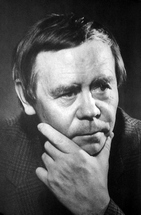
(b. 1937)
Bitov's peer and his complete opposite. Born in Siberia, he worked as a journalist at Komsomol construction sites, became widely known and successful in Soviet style at the age of thirty, and later became a Hero of Socialist Labor, twice a holder of the Order of Lenin. Despite this, he flatly refuses to move to the capitals, continuing to live in Irkutsk. In the 90s, he became a fierce conservative publicist and a stubborn “soilist.” Last thing piece of art– “Money for Maria” – published in 2004. For several generations of schoolchildren, they have been studying his “French Lessons” and “Fire” in their lessons, while cramming: “Valentin Rasputin - village prose”.
Main book: “French Lessons”
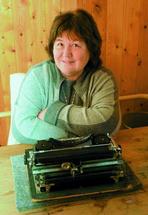
(b. 1937)
In the West, she is called the first Russian feminist, but in Russia, on the contrary, she is considered a traditional “female” writer. Because most of her heroes are ordinary women. Victoria Samoilovna herself usually says to herself that she always dreamed of being a Barbie doll, but she lived her whole life as a feminist. She dreamed of becoming a doctor, but failed her essay in the entrance exams. She became a music teacher, but could not help but write. So I still had to go to study at VGIK at the screenwriting department. She took her first story to Vladimir Voinovich, who read two stunted pages and said: “Your strength is in the details.” Write in detail≫. Then she sat down and turned two pages into 42 and, on Voinovich’s advice, called the story “A Day Without Lies.” He made her famous. And the scripts for the films “Gentlemen of Fortune” and “Mimino” are famous and popularly loved.
Main book: “About what didn’t happen”
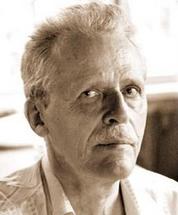
(b. 1924)
One of the rare survivors of “front-line writers.” He started out as a playwright and screenwriter (for example, he wrote scripts for KVN). But fame came to him after the publication in Yunost of the story “And the Dawns Here Are Quiet...,” which has not tired of being republished since then. The military theme became the main one for the writer, not only because he himself fought and was seriously wounded (shell shock), but also because he was the best at talking about it. "Dawns..." was followed by other stories - "Not on the lists", Tomorrow there was a war, "Whose are you, old man?". In the 1990s he began to write historical novels, but they certainly won’t be able to eclipse military works.
Main book: “And the dawns here are quiet”
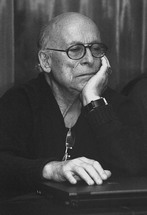
(b. 1929)
“Comrade Stalin!” You are a great scientist, // You know a lot about linguistics. // And I’m a simple Soviet prisoner // And my comrade is the gray Bryansk wolf,” the words of this song are known even by those who have no idea about children's writer Yuza Aleshkovsky, nor about an adult. Young Aleshkovsky served in the navy, but somehow distinguished himself in front of his superiors and was sentenced to four years in prison for violating discipline. After his release, having worked for two years as a driver in the virgin lands and at a construction site, he returned to Moscow and began to study literature. Officially, he was considered the author of children's books and scripts for films and television, and unofficially acted as a performer of his own songs. It was these unofficial activities that forced him to emigrate in 1979 to Austria, and then to the USA, where he lives now. His short prison past left a serious imprint on all his work: Aleshkovsky is one of the few who make obscenities and thieves' jargon sound like music.
Main book: “The penultimate life. Notes of a lucky man"
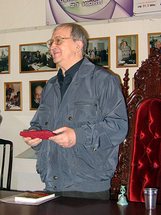
(b. 1933)
It is impossible to speak about him as a writer separately from his late brother Arkady Strugatsky. Arkady is the eldest, Boris is the youngest. Arkady is a Japanese translator, Boris is an engineer, a graduate of the Faculty of Mechanics and Mathematics of Leningrad State University. Both of them became two halves of the same science fiction writer named A. and B. Strugatsky≫, whose popularity was enormous in Soviet times. While children and teenagers laughed out loud at “Monday Begins on Saturday,” their parents were looking for hidden and not too anti-Soviet meanings in “Ugly Swans” and “Inhabited Island.” After Arkady’s death in 1991, Boris, under the pseudonym “S. Vititsky,” published two books, “The Search for Destiny” and “The Powerless of This World,” but they went almost unnoticed.
Main books: “Monday Begins on Saturday”, “Inhabited Island”
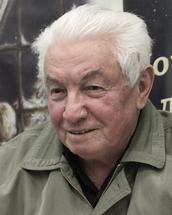
(b. 1932)
The creator of a modern folklore character - soldier Ivan Chonkin, who managed to stand in a close row between soldier Schweik, Vasily Tyorkin and simply the Soldier from Russian fairy tales. None of them would have guessed to answer the question: “How do you write your last name?” Through “o” or through “e”?≫ – he will answer: “Through “chi...”≫.” And Chonkin guessed it. After Chonkin, in 1986, Voinovich released the caustic dystopia Moscow 2042, which, according to some fans of his work, is getting closer every year. Not just in a chronological sense. After the third continuation of “Chonkin” in 2007, which did not sound as loud as the first two books of the “Chonkiniada,” Voinovich almost completely switched from literature to painting - and managed to become a professional painter, selling paintings from his own website.
Main book: “The Life and Extraordinary Adventures of Soldier Ivan Chonkin”
Masters
IN school curriculum they have not yet made it, but otherwise their influence and authority are undeniable.
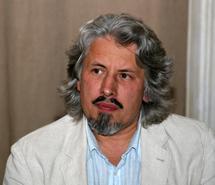
(b. 1955)
The bison of Moscow conceptualism, whose early texts are still impossible to read without sacred awe, and the sublime “ice trilogy” (“Ice”, “Bro’s Path”, “23000”) - without amazement. The turning point was the story “The Day of the Oprichnik” (2006), which reflected not only the personal experience of unprecedented pressure from semi-state structures like “Walking Together”, but also a philosophical, there is no other word for it, extrapolation of this experience. Sorokin is the only contemporary writer who has authored a libretto for an opera currently in production. Bolshoi Theater, – “Children of Rosenthal”, dedicated to clones and the problems of cloning. The close attention to this topic obviously reflected another personal experience of Sorokin - the experience of the father of twin daughters.
Main books: “Norma”, “Day of the Oprichnik”
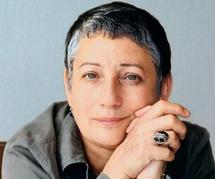
(b. 1943)
She began writing prose when she was already over forty, and published when she was over fifty. Over sixty, she received a beneficial rain of all kinds of awards and first places in sales rankings. “First she raised children, then she became a writer,” in her own words. Apparently, the hypnotic effect of her novels and stories is connected with this. Gossips they compare them with a well-known everyday situation, when a woman, while cooking borscht, comes to her neighbor for a minute to buy some laurel... and realizes herself after two hours of continuous chatter about everything and nothing. However, her best work - for example, the "Big Book" winner, "Daniel Stein, translator", of course, cannot be reduced to just the "lavrushka effect".
Main books: “Medea and Her Children”, “Daniel Stein, Translator”
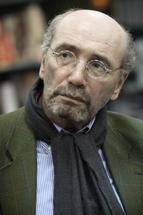
(b. 1943)
Junior comrade and student of Vasily Aksenov. From the generation of those who replaced the sixties, but did not completely break with them. His prose is sad and somehow emphatically old-regime, even if we are talking about a youth party, as in the novel “Everything Can Be Fixed.” A distinctive detail of Kabakov’s prose is attention to the clothes of the characters. “In any country, I can tell the difference between a university professor, an average entrepreneur, a hired clerk, etc., because there is a language of things. That's how it was in pre-revolutionary Russia. If Bunin had described my hero’s meeting with a young representative of the Bolsheviks on the boulevard, he, too, would not have failed to describe a fresh pair of Kolomyanka shirts, a colonial hat and a cane with an Adam’s head,” the writer explained to me about the novel “The Fugitive.” He is as attentive to his clothes as he is to the clothes of his heroes. The Zoiles even nicknamed him “the button singer.”
Main book: “Everything can be fixed”
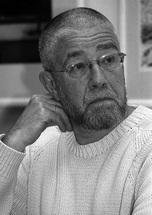
(b. 1952)
It is customary to say about the Muscovite Gandlevsky that he is a writer of the St. Petersburg tradition, continuing the line of Bitov and Dovlatov in prose, and Mandelstam and Brodsky in poetry. In the 1970s, he was one of the founders and members of the poetry group “Moscow Time” (together with Alexey Tsvetkov, Alexander Soprovsky, Bakhyt Kenzheev) and the group “Intimate Conversation” (with Dmitry Prigov, Lev Rubinstein, Timur Kibirov). He writes little poetry, and even less prose. He is one of those who believes that there is no point in wasting paper: you need to write only when you cannot not write. And partly he himself fell victim to this “calibration”. Although critics called his novel about the 1970s “Nrzb” “a love poem drenched in bitterness and anger,” they were still repeatedly reproached for being too philological.
Main book: "<нрзб>»
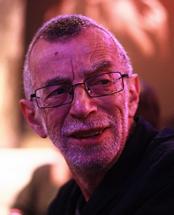
(b. 1947)
He writes poems that are not poetry at all, but dialogues, and essays that sound like poetry. Along with Vsevolod Nekrasov and Dmitry Aleksandrovich Prigov, Rubinstein is called one of the founders of Moscow conceptualism. His ≪ creative manner≫ turned out to be due to his daily busyness - he worked as a bibliographer for a long time. Thus, in the mid-1970s, a special genre arose, which is usually said to exist “on the border of verbal, visual and performative arts.” This is a genre of short notes on cards. This is how his book “Home Music Playing” is structured. And recently, as many as four boxes of cards were released under the general title “Four Texts from the Big Card Index.”
Main book: “Home music playing”
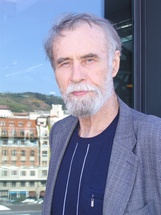
(b. 1937)
The plotting is not his strong point. Sometimes it’s even difficult to figure out which of the characters did and said what. Writer Makanin is strong in another way - the psychological motivation of his characters. He can delve into their “insides” endlessly and the reader will still be interested in following it. Like Gandlevsky, Makanin is no stranger to philology. He is especially attracted to the Tolstoy-Lermontov theme. Based on his story “Prisoner of the Caucasus,” Alexey Uchitel made the film “Prisoner.” Makanin’s recent novel “Asan,” which caused a wave of indignation against the writer, is again about the Caucasus. Its action takes place in Chechnya.
Main book: “Asan”
Premium authors
The ambiguity of the epithet here is deliberately admitted: on the one hand, these are authors known primarily for their involvement in the “premium process,” that is, regularly appearing on short and long lists of various awards, and on the other hand, they are certainly related to the fact that In regular, non-book marketing, it's called "premium."
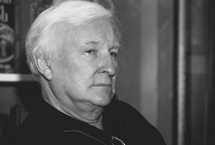
(b. 1937)
The literary debut of the main artist of the BDT happened already at post-retirement age, when the author was around seventy. Eduard Stepanovich never thought of himself as a writer. He was a lifelong artist and spent his entire life telling stories about his unusual childhood. The fact is that his parents, Poles, were repressed in Leningrad. During the war, he was evacuated with an orphanage to Siberia. And for several years, as a homeless child, he traveled from Omsk back to Leningrad, spending the winter in orphanages, and running away again in the summer. During his escapes, he communicated mainly with thieves, criminals and prostitutes. From these oral stories, polished over the years by listeners, his two books “Baptized with Crosses” and “Angel Doll” were formed, which immediately became laureates of literary awards.
Main books: “Baptized with Crosses”, “Angel Doll”
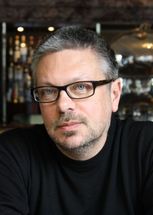
(b. 1961)
Winner of all the main domestic literary awards, author of the novels “The Taking of Ishmael”, “Venus’s Hair”, “Pismovnik” (all three were staged in different theaters), who spent his childhood in a communal apartment on the Arbat, in language, thinking and even in his way of life he turned out to be the most sophisticated Russian cosmopolitan European, the darling of Western publishers and the direct heir of Ivan Turgenev and Vladimir Nabokov. What unites him with the latter is not only his residence in Switzerland, but also his attempts to write in a language other than Russian. True, not in English, but in German, and not novels, but fictionalized guidebooks and travelogues.
Main books: “Venus’ Hair”, “Letter Book”
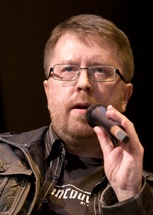
(b. 1966)
“White Officer” of Russian prose made his debut in print as a translator of English literature. Which, however, is not so strange, given his education and ten years of work as an assistant professor in the Department of English Philology at Yakut University. He made his debut as an original author in 2001 with a story with the sweet title “Fox Mulder Looks Like a Pig.” Since that time, both the titles of his books and their content have become much more classical. After he received a “National bestseller” for “Steppe Gods” in 2008, the publishing house “Eksmo” considered that Gelasimov was mature enough to release his “side project” - a children’s story, which he wrote chapter by chapter while undergoing an internship in the UK, and sent home to the children.
Main book: “Steppe Gods”
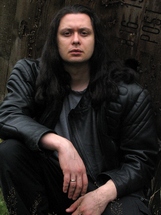
(b. 1973)
A young man (this definition is still quite applicable to Elizarov), dressing in gothic style, who wears his hair in a long curly ponytail and writes thoroughly postmodern stories and novels in which common mythologies are inverted (for example, about Boris Pasternak - in the novel called "Pasternak") and new ones are created - as in "The Librarian". In 2008, to the amazement of many, this novel received the “Russian Booker” - and to the bewilderment of his colleagues, the chairman of the award’s organizing committee responded like this: “There’s still something in it...”
Main book: “The Librarian”
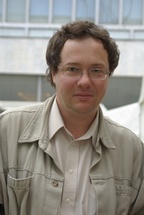
(b. 1970)
The Moscow “physics and mathematics boy”, originally from the Azerbaijani Sumgayit, like many other similar boys of his generation, went to America in the early nineties to do what is vaguely called “scientific work”. That is, diligently forging the American dream. But in 1998 he finally returned to Russia - in order to become a Russian writer. And quite successfully: in thirteen years - six large, thoughtful novels, among which are “Persian”, “Matisse”, “Mathematician”, highly appreciated by critics. And that's not counting collections of poems and stories. In recent years, he has been inclined towards another emigration, an internal one: he prefers to live in a house bought in Tarusa.
Main book: "Persian"
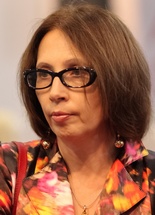
(b. 1957)
“Under” Olga Slavnikova, literary critics specially came up with a new term: “Ural magical realism”. Her first novel, “Dragonfly Enlarged to the Size of a Dog,” was truly amazing in scope and captivating, although it was not easy for even experienced readers to get through. Subsequent novels, without losing their vivid imagery, became more and more restrained and transparent over time. The last one - “Light Head” - is already perceived almost as a satire on the topic of the day. Perhaps the writer’s ten-year work as the director of the “Debut” youth prize is taking its toll.
Main book: "2017"
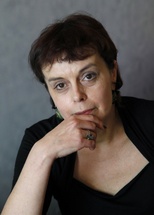
(b. 1957)
St. Petersburg prose writer Elena Chizhova had many years of difficult relations with the Russian Booker Prize. She was nominated twice, reached the final twice, and did not win. In 2003, she competed for the prize with the novel Lavra about the search for God, in 2005 with the novel Half-Breed, which was reproached for Zionism and anti-Semitism at the same time. And finally, in 2009, her novel “The Time of Women” about the role of women in modern Russia and historical memory won. And as if by magic, Elena Chizhova moved from St. Petersburg writers of the second rank to Russian writers of the first rank. They also say that literary prizes in Russia mean nothing.
Main book: “The Time of Women”
Fiction writers
Those who prefer to live not in the mountainous heights of high literature, but in the rich pastures of readership. However, without forgetting about quality. If possible, of course.
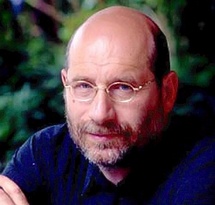
(b. 1956)
Another example, after Ulitskaya, of a “late start”. The Japanese writer Grigory Chkhartishvili became a fiction writer B. Akunin when he was already over forty. The pseudonym, although a playful one ("akunin" in Japanese - "villain"), was chosen for quite serious reasons: Grigory was simply embarrassed to announce to his highly intelligent friends and colleagues at the magazine "Foreign Literature" that he was writing some detective stories about a handsome man with a mustache. It's strange to remember now. Another thing is no less interesting. There are strong “opinions” in literary circles that two more mysterious authors with the initials AB – Anatoly Brusnikin and Anna Borisova – are actually “pseudonyms of a pseudonym”, that is, side projects of the same Chkhartishvili. If this is so, then he is superior in productivity to Dmitry Bykov. Also in B, by the way.
Main books: “State Councilor”, “Diamond Chariot”
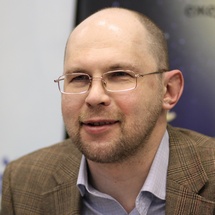
(b. 1969)
The words of one critic that “the prose of Alexei Ivanov is the gold and foreign currency reserves of Russian literature” are so often reproduced on the covers of his books that they began to obscure the rest. Yes, Ivanov's heroes - be they the mythical Voguls of the 15th century ("The Heart of Parma"), the semi-mythical rafters of the 18th century ("The Gold of Revolt") or the mythologized modern Permians ("The Geographer Drank the Globe Away"), speak a special language and think in a special way. But still, first of all, Alexey Ivanov is notable for others. Emphasizing his “provincialism,” he nevertheless carefully ensures that the plot follows all the laws of a Hollywood action movie in any novel. After the relative failure of “Fornication and MUDO” and the clearly disappointing collaboration with Pavel Lungin in the film “Tsar”, Ivanov decisively turned to television and local history projects. Let's hope not forever.
Main books: “The Geographer Drank His Globe Away”, “The Heart of Parma”
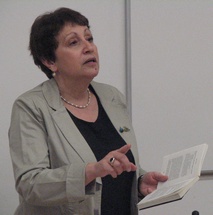
(b. 1953)
Being ten years younger than Ulitskaya, she began publishing original books a good ten years earlier than her. How negative consequence– managed to get the sticky label of “women’s writer”, although her “On the Sunny Side of the Street” won the third prize ≪ Big book≫ in the same year when the first one went to ≪Stein≫ Ulitskaya. The 2004 novel “Syndicate”, which describes with a satirical intonation the Moscow branch of the Israeli agency “Sohnut”, where Rubina worked for two years, quarreled her with many in Israel. But Rubin’s disadvantage remained: she is, perhaps, the only Russian writer whose permanent residence in Israel did not in the least separate or quarrel with Russian readers.
Main book: "Syndicate"
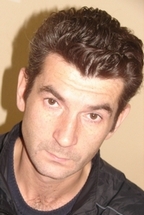
(b. 1969)
Self-made writer. In 1996, Rubanov was taken into custody on charges of fraud. In 1999 he was completely acquitted. This is TV sufficiently extreme experiences formed the basis of his debut novel “Plant and It Grows” (2005) about the life of an illegal banker in the nineties. It is generally accepted that books published at the expense of the author are a graphomania that no one needs. Rubanov's novel turned out to be a happy exception - both readers and critics noticed the book. And Rubanov, in turn, met the expectations of both. Since then, he has written a sufficient number of novels, more and more similar to a fantastic dystopia, but this does not cease to be remarkably topical.
Main books: “Plant and it will grow”, “Chlorophilia”

(b. 1964)
“The name with which his books are signed is a pseudonym, behind him is a dark criminal past, ahead is a bright literary future,” the publishing house Ad marginem, which began publishing his books, invitingly introduces its author. His appearance is a mystery to most readers, because except for wearing a mask for the media, he is not photographed. A blogger, screenwriter and prose writer, writing under the pseudonym “Adolfych,” lives in Kyiv, writes books in Russian in the strange genre of “reading scripts” or “novels in dialogues.” This is how his “Alien” was written – about the gangster Kyiv of the 1990s. This is how Adolfych’s second book, “Fiery Burial,” was written, which, in addition to the title script, included several stories.
Main book: “Alien”
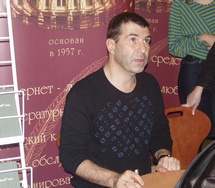
(b. 1967)
A philologist and theorist who began as a playwright and performer of his plays, but then the dramatic stage seemed not enough for him. He added music to this, teaming up with the group “Bigudi”, and in 2004 he also turned to prose writing, releasing the novel “Shirt”. Short stories and collections of stories began to be published. Despite the fact that the author works very seriously on each of his works and then proudly notes that the “author’s position” in this book is not at all similar to the “author’s position” in the previous one, one gets the impression that Grishkovets, with his plays, performances, in prose and songs all his life he writes the same text of his name. And at the same time, each of his viewers/readers can say: “He wrote this directly about me.” And he’s not lying, after all.
Main book: "Shirt"
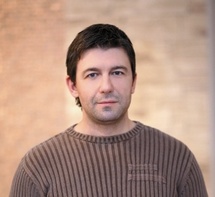
(b. 1966)
Formerly a journalist, currently a successful businessman and wealthy person. Journalism taught Terekhov to find interesting things and write about it in an accessible way. His thickest, most famous and successful book, “The Stone Bridge,” received the second “Big Book” prize, but was received ambiguously by critics. They criticized me for the looseness and unstructured composition and free reference to history. But the idea should only be praised. The plot of the book is based on the investigation of a mysterious incident: on the Stone Bridge in Moscow in 1943, there was a murder and suicide of two boys and a girl from families commonly called the party elite.
Main book: “Stone Bridge”
Cult
Or, since this word has now practically lost its original meaning - “enjoying the colossal respect of a small number of experts,” or simply “hidden imams.” And there is no need to say that everyone reads Pelevin. Indeed, everyone reads it, but how many understand what it’s about?
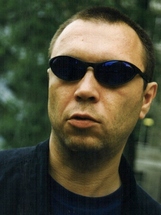
(b. 1962)
The youngest and at the same time the most undisputed of the cult authors mentioned here. Nowhere is the path of thinking Russian youth of the 80s and 90s (who have now, having matured, reached high positions) from reverent creators to cynical “creators” described so vividly and mercilessly, as in Pelevin’s novels and stories - despite what, what to his own assurance, their action unfolds “in absolute emptiness.” Pelevin consistently avoids public gestures, and in his case it bears fruit. Suffice it to say that the main intrigue at the May presentation of the “National Best of the Decade” award was not “who will receive the award?” (and the $100,000 due to it, which the organizers vowed to give only personally to the winner, otherwise they would simply “burn” ≫), and – ≪will Pelevin appear?≫. Pelevin, as usual, did not show up.
Main books: “Chapaev and Emptiness”, “Empire V”
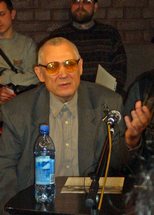
(b. 1931)
It’s hard to imagine: in the early Thaw years, while dissidents and liberals were agonizing over whether Stalin had distorted Lenin’s teachings, a group of Moscow intellectuals, working in inconspicuous jobs during the day, met in the evenings to study and discuss texts of Indian philosophy, the works of Guenon, literature on the occult and alchemy. The informal leader of this circle was Yuri Mamleev, a mathematics teacher at an evening school and a metaphysical writer. His name is associated with the appearance of “esoteric samizdat” in the USSR - and it is not surprising that he spent the years from 1974 to 1994 in America and France. Currently he lives mainly at the state-owned dacha of the Writers' Union in Peredelkino - and continues to write books in which the incredible simplicity of the form sets off the incredible philosophical richness of the content.
Main book: “Connecting rods”
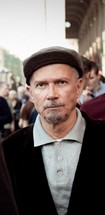
(b. 1943)
It can be said that the classification of this prolific, temperamental author, who had a significant influence on subsequent Russian writers (for example, Prilepin), as a “cult” rather than a “classic” is dictated primarily by respect for the personality of the writer himself. The restless gray-haired playboy and tribune is definitely not going to be anything but a bronzed classic and is running away from this uncomfortable state for himself in every possible way. possible ways. Including the fact that, having reached, in his own words, “a certain age when a man again becomes lustful like a teenager,” he again began to publish “partly erotic, partly pornographic” poems. His essays are unlikely to ever be included in the school curriculum.
Main book: “It’s me, Eddie”
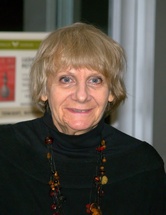
(b. 1938)
A professional playwright and writer, who has lived her entire life in the image of a kind of Gelsomina - the absurd and touching character of Giulietta Masina from Fellini’s “The Road”. Both plays, prose, and even fairy tales are a direct continuation and deepening of this life-building role. Its heroes, and especially its heroines, are absurd, tragic in their ordinariness - and evoke deep compassion. At the age when it becomes decent for even ladies to remind him of him again, that is, in her eighties, Lyudmila Stefanovna made her debut as a cabaret singer. And her shows in intellectual Moscow clubs began to enjoy enormous success.
Main books: “Immortal Love”, “Battered Pussy”
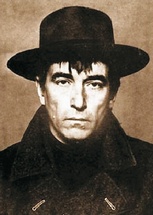
(b. 1943 in Ottawa)
The qualification “born in Ottawa” defines a lot. Like many representatives of the second generation of the Soviet elite, from a young age he was a staunch anti-Soviet. And as a native of Ottawa, he had the right to Canadian citizenship from birth. The combination of these two factors led to the fact that in 1965 Sasha was detained by border guards while trying to cross the Soviet-Iranian (!) border. The matter was hushed up, but Sasha himself still fled abroad ten years later in a less exotic way: by marrying an Austrian. All this would not matter if not for three novels that combine modernist stream of consciousness with postmodern quotation and purely Russian intonation: “School for Fools” (1976), “Between a Dog and a Wolf” (1980) and “Rosewood” (1985) . Since the second half of the 2000s, Sasha again began to slowly publish exquisite poetic prose - “prose”, as he himself calls it.
Main book: “School for Fools”
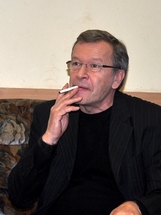
(b. 1947)
He is the younger comrade of such writers as Bella Akhmadulina, Andrei Voznesensky, Evgeny Rein and the eldest - Vladimir Sorokin. With the first he participated in the uncensored almanac "Metropol", with the second he is united by some artistic methods. His books are not only popular among readers and the cultural community (the novel “Russian Beauty” was translated into more than twenty languages and became an international bestseller; based on the story “Life with an Idiot,” Alfred Schnittke wrote an opera, and Alexander Rogozhkin directed a film of the same name), but also They regularly find themselves at the center of various scandals, collecting accusations of Russophobia and pornography.
Main book: “Russian Beauty”
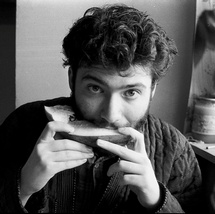
(b. 1966)
≪I write like an artist, maintaining the connection between writing and drawing. Through ancient culture manuscripts reveal the physiological side of the matter,” says the writer and artist, founder of “psychedelic realism,” Pepperstein. His former publisher Alexander Ivanov considers him to be a continuator of the tradition coming from Konstantin Vaginov, the Oberiuts, but in Russian criticism Pepperstein is usually called a “beatnik” and put on a par with Burroughs and Kerouac because of his manner with the help of various chemical substances experiment with consciousness, and then record your experience with the help of works of art.
Main book: “Prague Night”
Fashionable
These are mostly writers whose faces are better known than their names, and whose names are better known than their books. Everyone knows them from their participation in television and radio broadcasts, from columns and remarks in magazines.
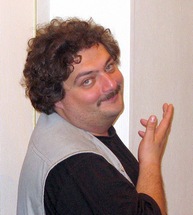
(b. 1967)
Getting to know the personality and activities of Dmitry Bykov - The best way believe in the possibility of transmigration of souls. Because the further you go, the more Bykov becomes like the legendary Dumas the Father - only embodied in modern Russian realities. Both writers are distinguished not only by their incredible fertility, but also by their appeal to all conceivable literary and journalistic genres at the same time. Both of them are lovers of life and hospitable people recognized by their contemporaries. And finally, just compare the photographs of Bykov and Dumas. Bykov has two children growing up. Will “Bykov-son” really appear in fifteen years?
Main books: “Boris Pasternak”, “ZhD”
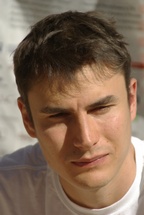
(b. 1980)
It seems that the only writer on this list who received this occupation along with eye color is from his parents. Moreover, his father, Alexander Shargunov, is a well-known Orthodox intellectual in his circle, an archpriest “of philologists.” It is no wonder that Sergei, from his adolescence, longed to sharply isolate himself, and completely achieved this, and in different areas. From the age of twenty he published in the “New World”, at the age of twenty-one he received the “Debut” prize for major prose (he gave the monetary part of the prize in support of Limonov, who was then imprisoned), at the age of twenty-three he received the state prize from the Moscow government. At twenty-five, he headed the youth wing of the Rodina party. At twenty-seven, he was appointed to the first election three of “A Just Russia” (however, the appointment was quickly withdrawn). Knowing all this, you are less surprised that by the age of thirty-one he had “ripened” to write memoirs, which he called “A Book Without Photographs.”
Main book: “Book without photographs”
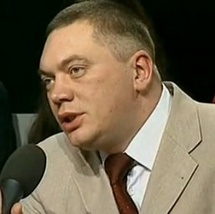
(b. 1973)
Outwardly, he is a large, round-headed man who looks older than his years and prefers strict classic suits with ties (which is not so common among modern writers). Internally, he is a real centaur: half Chechen, half Terek Cossack, writer and lawyer, author of brutal “soil-based” texts (books “I am a Chechen!”, “Shalin Raid”) and a left-wing European intellectual, who talks, in the spirit of Pelevin, about intoxication the impact of global corporations on the world (the novel “The Tablet”) and easily draws parallels between Ramzan Kadyrov and the wolf Fenrir from Scandinavian mythology. And finally, last year he joined the Communist Party of the Russian Federation.
Main books: “I am a Chechen”, “Shalin Raid”
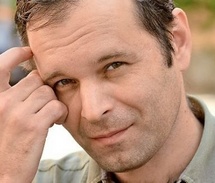
(b. 1971)
If Dmitry Bykov is a direct reincarnation of Dumas, then a bit of Dostoevsky has clearly moved into Senchin. Of course, this can be said about almost any Russian writer, but just look at Senchin’s high forehead, well-sculpted unsmiling face and deeply sunken, unblinking eyes - and the thought of Fyodor Mikhailovich somehow immediately comes to mind. Especially when he grows a beard. And even more so if you read his prose, in particular his last novel, “The Eltyshevs”. A merciless and desperate story about the degeneration of a simple Russian family was named among the favorites of all literary awards last season, but it received nothing. Apparently, the concentration of hopelessness was excessive even for the timid jury members.
Main book: “Yeltyshevs”
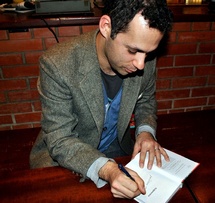
(b. 1976)
Another author of a book that should never have become fashionable, but now it has. Idov was born in Riga, and at the age of sixteen he moved to the USA. Lives in New York, works as a journalist. The novel was originally called Ground up. ≪It is written in English language, because it could not be written in any other language. His main conflict is completely alien to the Russian mentality,” the author says about him. Despite its inappropriateness for a Russian audience - well, who among the Russians is interested in how an American intellectual decided to realize his dream and open a Viennese coffee shop in the Lower East Side - Idov, with the help of his wife, quite successfully translated it into Russian and the book became an event of last year.
Main book: “Coffee grinder”
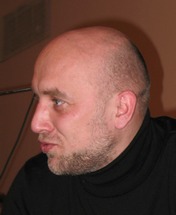
(b. 1975)
The fact that it was he who received the very “National Best of the Decade”, to which Pelevin never showed up, is completely natural. Because Zakhar Prilepin is the only one who during the “reporting period” grew from a novice writer, a fringe troublemaker, a National Bolshevik and a riot policeman, into professional writer, whose books – “Pathologies”, “Sankya”, “Boots Full of Hot Vodka” and the recent “Black Monkey” - occupy first places in the sales rankings. True, the last novel did not turn out very well - loose, unreadable, with stupid speech errors, which cannot be attributed to the original author's style. Who would like to wish to spend less time on various broadcasts and sit more at their desk. It would be a pity to lose among the speakers and columnists perhaps the only serious writer of the last decade.
Main books: “Sankya”, “Sin”
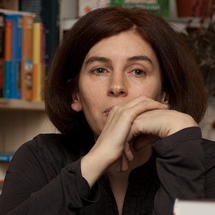
(b. 1969)
She lives in Yerevan, works as a cartoonist and has two children. The novel “The House in Which” is about a boarding school for disabled children is the first, the only one, and it is possible that last book Petrosyan, which she wrote for more than ten years “for herself,” then hastily added a finale to it and published it, was nominated for the “Big Book,” reached the final, and won the “Russian Prize.” But the point is not in the awards, but in the fact that the book, not on the easiest topic, without any advertising, became a real “successful project” and became a long-running bestseller. And even if Mariam doesn’t write anything else, “The house in which” she has already built.
Main books: “The House in Which”
Underrated
Once fashionable writers who fell out of the reader's attention for years. It is gratifying that some of them, like Anatoly Gavrilov and Yuri Buida, are returning to this field again on white horses.
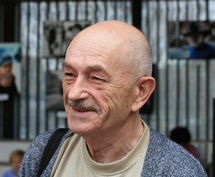
(b. 1946)
The classic “janitors and watchmen” have long left their underground, and Anatoly Gavrilov, who is old enough to be their elder brother and uncle, still works as a postman in Vladimir. His prose is super-compact and super-compressed (comparison with a telegram is inevitable - and not coincidentally), magazine publications and, even more so, author's books appear extremely rarely, but the presentation of each of them - for example, his last book "Berlin Flute" - is an event that attracts many non-random of people. And everyone congratulates each other on Anatoly Gavrilov’s new book.
Main books: “Berlin Flute”
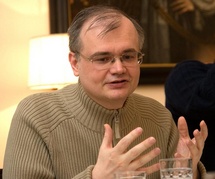
(b. 1960)
Author of a gigantic (the size of Anna Karenina) and monstrous philosophical novel“Endless Dead End”, completed by 1988 and became a cult among postmodernist intellectuals, who saw in it the visible embodiment of all the principles of this very postmodernism: quotation, repeated inversion of the author’s “I” and, finally, end-to-end hypertextuality (the text of the book is endless “notes” to the notes≫) – long before the advent of the Internet! It is not surprising that “having come to power,” that is, having become editors-in-chief and department editors of literary and glossy magazines, these intellectuals began to “push” Galkovsky and quickly found themselves forced to abandon his texts and his services - so absurd and fixated on one thing - Upon closer examination, two of his manic ideas turned out to be the luminary of Russian postmodernism. So now Galkovsky’s activity is almost completely limited to his LiveJournal - where, however, he is followed by almost six thousand subscribers.
Main book: "Endless Dead End"
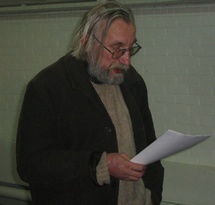
(b. 1951)
Poet, novelist and book artist. Real name- Gomankov. “Bytov” is an alias derived from the term “byte”. This is how the joke arose that “Bytov deliberately took such a pseudonym for himself in order to hint that it was equal to eight Bits.” Baytov is the organizer of numerous literary events (the annual “Holiday of Rhyme”, “Literary Carnival”, a number of exhibitions of book art and author’s books) and literary performances. Due to the complexity of his prose, which refers to problems of philosophy, he received the nickname “Russian Borges”. One of the few domestic authors working in the ready-made technique is when a writer presents as his work a text that was not created by himself (in art, for example, Duchamp did this in 1914, calling a urinal “Fountain”).
Main book: “Think what you say: 41 stories”
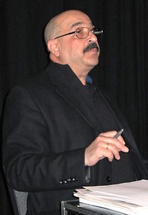
(b. 1948)
This is not a character from Mr. Zagoskin’s work, this is a Russian prose writer, poet, literary historian (Pushkin scholar) and religious scholar living in exile. Critic Viktor Toporov, who can hardly be called generous with praise, called him “one of the two best prose writers in the diaspora - along with and, most importantly, on a par with Sasha Sokolov, although in a completely different spirit.” Although Miloslavsky has lived in America since the 1970s, he calls himself a “traditional Russian writer,” because in the 1980s, when everyone suddenly began writing autobiographical texts, in his artistic manner he completely refused to introduce his own biography into the text. His prose was published in Russia in the early 90s and has never been republished since then. This year, a book of selected stories and novellas, “Beloved Shadow,” was published - the first in the last twenty years.
Main book: “Fortified Cities”
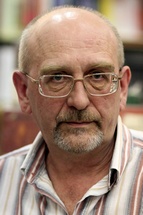
(b. 1954)
Buida was actively published, read and discussed throughout the 1990s. “Moralizing and eloquence combined with naturalism and profanity,” critics wrote about him at the time. And then suddenly he disappeared for ten long years. His triumphant return began almost a year ago with the re-release of the book of stories “The Prussian Bride”. Next came a new book and again the stories “The Jungle,” bright and eerie. Now Buida’s novel “Blue Blood” has been included in the shortlist for the “Big Book” award. Even if he is not among the top three laureates, he has again become a writer of today and the first rank.
Main book: “The Prussian Bride”
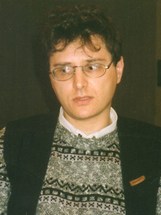
(b. 1959)
Sergei Soloukh's real name is Vladimir Sovetov. “Writing itself is a game, a prank, a mixture of clownery and ballet... I think a pseudonym is an obligatory part of a writer’s artistic paraphernalia,” he explains the separation of private and literary biography. A subtle stylist (“style is everything, plot is nothing”), almost a poet in prose. They call him the heir of Andrei Bely, but he says that he has not read Bely. His prose could be considered literary-centric if he had not insisted that “life itself is more important than words.” His latest novel, The Box Game, reached the finals of the Big Book.
Main book: “Unter Prishibeev’s Lonely Hearts Club”
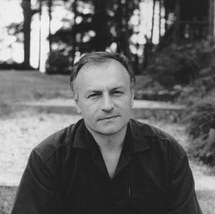
(b. 1962)
Another subtle, stylistically precise, philologist by training and prose philologist is a writer. Born in North Ossetia, he writes Russian as flawlessly as Muscovites do not. His destiny is a thick magazine audience and long and short lists of literary awards. To become a laureate, his prose is apparently too watercolor.
Main book: "Villa Belle Letra"
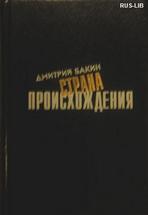
(b. 1964)
The invisible man of Russian literature, whose every word is worth its weight in gold. All that is known about him is that his real name is Dmitry Bocharov and it is believed that he was born in the Lugansk region and works as a truck driver. That's all - he doesn't appear in editorial offices, doesn't go to literary parties, gives interviews by mail (single mail, not electronic mail). He published his first story in 1987, his last in 1998. In 1995 he received the Anti-Booker award, but his wife came for it. Two books of prose have been published, which have been translated into French, English and German. For the existential questions he poses in his texts, in France he is called the “Russian Camus”.
Main book: “Country of origin”
Noteworthy
They are not exactly at the top of the ratings, but their new books are always a pleasure to wait for, and after reading them you want to think and talk about them. These authors are simply talented and smart people, whose thoughts make this crazy world a little clearer.
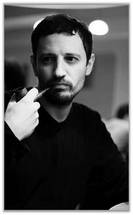
(b. 1973)
Bennigsen likes to experiment in the artistic space. All his texts are based on this. A certain closed world is taken, an ideological situation is invented for it, and then the author sees what comes of it. In “GenAcid” it’s pure literary history: what will happen if the residents of one village are forced to memorize texts and excerpts from the works of Russian writers and poets, instilling in them that this is the state’s national idea. In the recently released "WITCH" - what will happen if dissidents are deprived of social activity, but left with freedom of creativity. Serious controversy erupted around this ideological component of Bennigsen’s novel.
Main book: "WITCH"
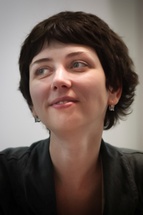
(b. 1978)
A fragile, silent girl, a “cultural journalist”, at the age of 28, who overnight became a “Russian Stephen King” after the release of a collection of creepy – I mean, horror – short stories “The Age of Transition”. What was meant was not adolescence, but the transition of people into other, frightening and repulsive states. The novels “Shelter 3/9” (that is, “The Far Away Kingdom”) and “Sharp Cold Cold” strengthened this reputation. But Anna’s most interesting writing experience so far is the book “The First Squad”: not a fictionalization of the full-length cartoon of the same name, but an attempt at reflection on it: main character watches “The First Squad” in the cinema and begins to notice that mystical connections with the story of ghost pioneers are beginning in her life.
Main book: “Transitional age”
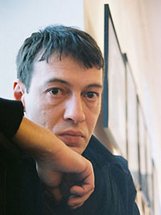
(b. 1967)
He stayed too long in the “promising” group. Back in the 1990s, he published the novels “Round Dance” and “Self-Taught”, but critics were still undecided about him: is he a realist or a postmodernist? And he somehow got stuck at this crossroads. And then he himself admitted that “the changing reality turned out to be much faster than my ability to comprehend it.” IN in a certain sense For some time I fell behind life. I'm talking about this six recent years wrote a novel, racing with life. Wrote. It’s called “Fortress of Doubt”≫.
Main book: “Fortress of Doubt”
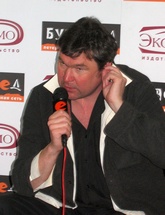
(b. 1965)
Journalist and literary critic Kuritsyn writes very good novels under the pseudonym Andrei Turgenev. The name was borrowed from the poet Andrei Turgenev, who died in 1803 at the age of 23. The breakthrough of the resurrected writer’s pen was the detective story in European settings, “The Month of Arcachon,” which was shortlisted for the “National Bestseller.” The second to appear was a novel about the siege of Leningrad, “Sleep and Believe,” followed by the Venetian art novel “So that God would tear you to pieces from the inside.”
Main book: “The Month of Arcachon”
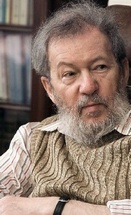
(b. 1937)
Writer and emigrant philosopher, living in America since 1978. Several times he found himself at the center of, if not literary scandals, then unrest. In 2001, a scandal broke out around the publication of his correspondence with Sergei Dovlatov - the latter’s heirs were categorically against the publication of the letters. In 2007, his novel “Unfaithful” about a girl who does not find the strength to remain faithful to one man and cheats on him with... Russian writers - Turgenev, Herzen, Bunin, Mayakovsky - was received ambiguously by critics. Efimov called her behavior “passionate philology.”
Main book: “Infidel”, “Nobel Parasite”

(b. 1958)
It cannot be said that Sakhnovsky’s first two novels, “The Urgent Needs of the Dead” and “The Man Who Knew Everything,” were very inspiring. The second one is generally more like a script. By the way, it was filmed by Vladimir Mirzoev in 2009. But the third novel, “A Conspiracy of Angels,” is a completely different prose, a little torn, sincere and emotional, about what a difficult matter love is. After it, you really look forward to the author’s next book.
Main book: “A Conspiracy of Angels”
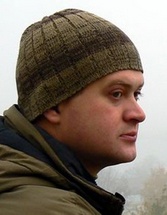
(b. 1977)
New Alexey Ivanov, only more strict and ascetic. He lives in Kazan, studies Perm folklore and writes prose without capital letters and with light punctuation - so strange that it looks more like mediumistic writing than the work of thought. His characters belong to the now extinct Merya people. This is a Finno-Ugric tribe that lived in that part of Russia that now belongs to the Golden Ring, before the arrival of the Slavs. Then they assimilated with the Slavs and turned into modern Russians, losing their language and their mythology. And Osokin, in essence, returns their language and rituals to them.
Main book: "Oatmeal"
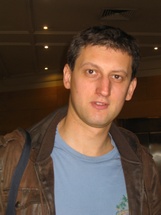
(b. 1974)
One of the most influential (if not the most) literary critic of our time with a very distinctive style of his own. Despite the fact that he emphasizes in every possible way that he “flagrantly” does not participate “in lobbying “his” authors and bullying “alien” ones - in what is called “the functioning of the literary environment”,” nevertheless, it was he who made Alexander Prokhanov a fashionable writer . First in reviews, and then in the book “The Man with the Egg” - his artistic biography. And thus he himself also became a writer (“The Man with the Egg” is a finalist in the “Big Book”). The next book, “Yuri Gagarin,” is no less remarkable, because Danilkin turned the “Life of Remarkable People” series into “a life of wonderful ideas” about who Yuri Gagarin really was for his people and state.
Main book: “Yuri Gagarin”
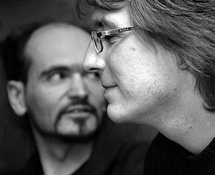
Alexander Garros(b. 1975) and
Alexey Evdokimov(b. 1975)
They became friends at school when they were fourteen years old. Then they started writing books together. In 2002, their first joint novel, “(Head) Breaking,” was published about a bank employee who imagined himself as a character in a computer shooter and killed all his superiors. The novel received an award ≪ National bestseller≫. Then three more books came out. And then they broke up and started writing separately. So instead of one curious writer in Russian literature two appeared.
Main books: “(Head)breaking”
|















































































